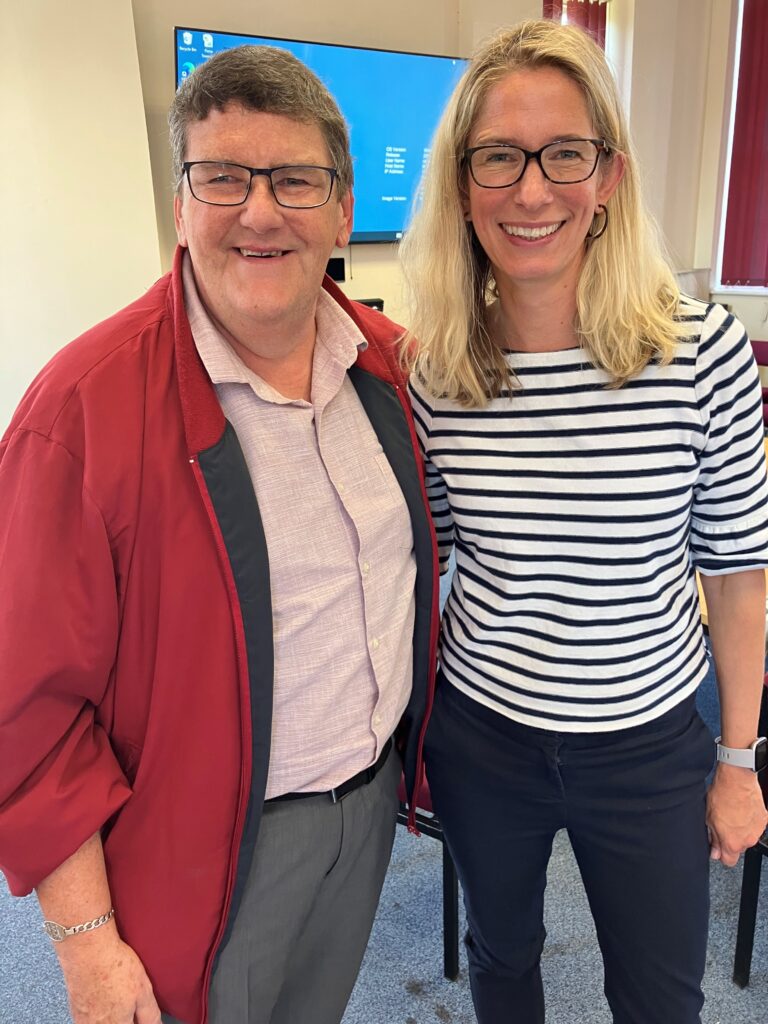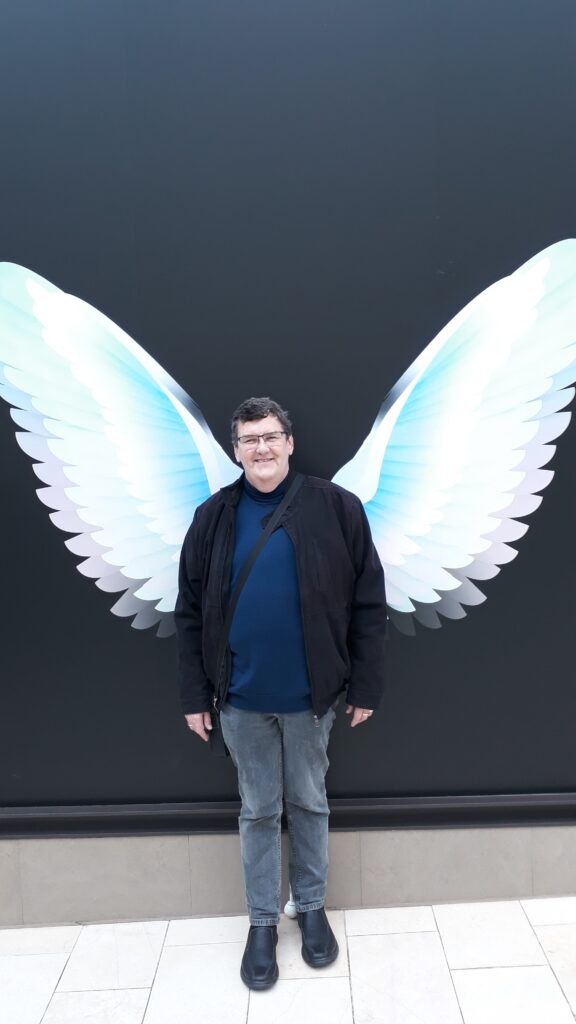Content warning: suicidal thoughts
1974 was quite a year for myself and my family.
I had a history of illness. My dad was always suspicious about illness and thought I was putting it on.
I was 14 years old, one of six children. One of my brothers had died in 1960, which had affected the family immensely.
Around Easter of 1974, I discovered I was blind in my right eye. Mum and dad were shocked. I went to the GP and after numerous visits he sent me to the hospital, as one side of my face had also dropped.
I was being violently sick in the mornings, and was experiencing terrible headaches and earaches.
An ophthalmologist discovered the tumour and sent my mum and I up to neurology. I was admitted to hospital that day, and my mum had to go home and tell dad and my siblings what was going on.
I was given a brain scan, not the one we know today. Instead they used x-ray and dye, injected into the neck and base of the skull! I passed out.
They found a tumour on my pituitary gland. It had grown into the brain area, across the back of the optic nerve of the right eye, toward the left optic nerve. It was quite a size!
I had my operation on May 3rd 1974 in Derby. Later in the year, I had radiotherapy for 28 days on a huge machine, that was really noisy.
Then there was all the medication! I was on the old hydrocortisone tablets. Within a few years they had burnt the valve into my stomach, so acid kept coming back up.
The neurologists main concern was my weight. I dieted for ten years, but I was always hungry and wasn’t losing much weight. As soon as I stopped the diets, the weight would come right back. My mum put all the food in the pantry and the door was padlocked, so I could not eat anything. This was torture. What mum didn’t know for many years, was that my sister Julie could open the padlock with the end of a teaspoon! We helped ourselves when mum and dad went out.
I was also bullied at school, and when I returned to school after my surgery, I was suicidal.
During all these years there was no help for people like me, let alone my family. No counselling. No knowledge of the condition. I was at the mercy of the medics, who often got things wrong.
but……….
Here we are fifty years 50 years on.
A lot has happened. There have been some scary moments. Initially the care I received was hit and miss. The family had no help, we had no support. I did not even know about the ‘sick day rules’ or emergency injections. There was definitely no department of endocrinology.
I rarely had blood tests. The only care I got was collecting my medication monthly from my pharmacy.
I had various treatments at hospital, and I never once increased my hydrocortisone dose. No one knew I had to do so. I went for dental treatment and the novacane did not work, so I would go into cold sweat during the procedure, some of which were awful. My teeth had been damaged by the radiotherapy (no one knew about mouth shields at the time).
I got my first emergency injection kit in 1990, 16 years after my operation!
It really is a miracle that I am still here.
Now I am in my sixties, and I’m starting to have other problems creeping in. I have to admit, I do struggle with life, but for the most part I am happy to be here. I annoy many people! On the phone, in the street, the neighbours, my family. I consider this to be my reason to be here.
The advent of The Pituitary Foundation brought a bright light to my life. At last there were people to speak to, someone to go to on a bad day, people who would get where I was coming from. It transformed my life.
Knowing there are others with pituitary conditions who appreciate what others were going through.
As a result, I became more involved with The Foundation. I have also worked closely with my endocrine consultant to improve the way patients were diagnosed and treated. I am pleased to say that we have had success with this.
I am also involved in the medical school at the local university and speak to medical students about my condition and its day-to-day impacts
On bad days please remember, you are not on your own – you can access The Foundations support services and so can your support network. Speak to someone who will appreciate where you are coming from.
Thank goodness for The Pituitary Foundation.









